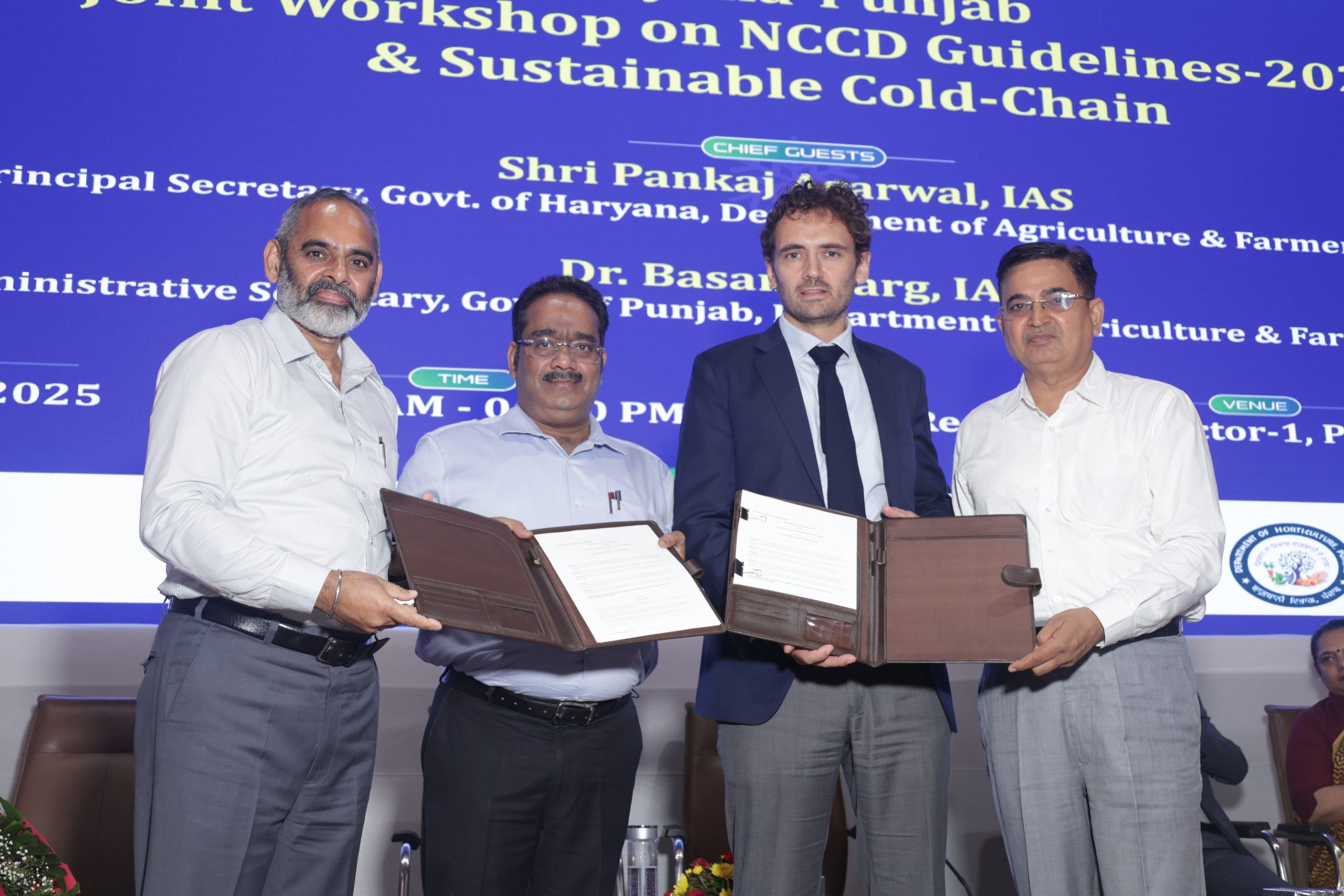The Cool Roofs Piloting Initiative in Niger (COROPIN), an initiative of Mercy Corps, is one of the ten finalists of the Million Cool Roofs Challenge. Here, Moctar Souley, Cool Roofs Project Coordinator at Mercy Corps, tells us more about their approach to scaling up the deployment of sustainable and quality cool roofs in Niger, and their experience of the challenge so far.
With most of its land mass in the Sahara Desert, Niger is one of the world’s hottest and driest countries. Heatwaves are common and temperatures regularly reach upwards of 40°C. Due to the impacts of climate change, the frequency of extreme heat events are expected to increase, affecting health, food security, and economic productivity. In order to avoid, or at the very least lessen these impacts, it is vital for Nigeriens to have access to cooling solutions.
That said, only around 13% of Niger’s population has reliable access electricity supply, limiting their access to cooling. Even where access to electricity is less of an issue, the cost of air conditioning, both in terms of the appliance itself and electricity to run it, makes it an unfeasible option for most. Disparities exist across the country, but they’re particularly obvious between urban and rural communities.
In situations such as this, it’s important to think outside the box, shifting away from mechanized cooling that requires significant amounts of electricity and other resources, and towards passive cooling solutions, such as cool roofs, which reflect solar radiation away from buildings, reducing indoor temperatures.
Cool roofs in Niger
The city of Niamey, where COROPIN is piloting its project, is currently undergoing a massive transformation with high levels of urbanization and peri-urbanization. With its booming population comes an increased demand for energy, putting pressure on an already-struggling electricity supply. During the hot season (February-May), the city is plagued by long periods of power outages, plunging hundreds of thousands of households into heat stress due to a lack of access to electricity for cooling.
Most houses in Niamey are also poorly insulated and built with zinc or corrugated metal roofs, resulting in unbearably hot living conditions. Occupants are often forced to sleep outside, exposing them to additional health problems like malaria.
In this context, I believe that our pilot project will provide an innovative solution for the communities of Niamey.

Local workers, newly trained by the project, applying cool roofs coatings to buildings in Niamey.
The project is as much about communications as it is about applying cool roof coatings. I think that successfully introducing cool roofs to the Nigerien market will require a lot of promotional activities to inform individuals, businesses, and other organizations of the benefits that cool roofs can offer. We will use a range of outreach channels (e.g., social media, television, billboards, flyers, etc.) but our priority will be using demonstration sites (e.g., schools, health centers, homes, and stores, etc.) to create interest and stimulate demand for the solution.
We will support the private sector in developing a commercial market to meet the demand generated by the project, by linking and facilitating exchanges between external suppliers and Nigerien companies interested in offering cool roofs coating.
We are also trying to get architectural companies and non-governmental organizations working in Niger to commit to include cool roofs into their work – be it building new properties or retrofitting existing ones.
Our experience so far
As with any project, there are challenges that we face daily. As project coordinator, the main challenge I have encountered is in getting the authorization needed to import the cool roof products. Then, like many other countries around the world, the Covid-19 pandemic hit and led to a cascade of measures and restrictions that slowed the process down even further. For the safety of our team, it also resulted in the temporary suspension of all field work.
This delay pushed us into the rainy season, which, due to the nature of our work (i.e., applying coatings to roofs), led to further setbacks in our project timeline.
Despite all these challenges, the project has been met with great interest and enthusiasm from local authorities – including the Ministry of Community Development and Territorial Planning (MDC/AT) – local communities, and local businesses. What began as a project for climate adaptation and mitigation, has expanded into a project that also enhances the local economy through employment and training opportunities. As this is a new product in Niger, there wasn’t an existing qualified workforce, so we decided to take the opportunity to create one. In total, 34 young people in Niamey and Tillabéri received training on cool roof products and the methods and procedures for their application. Upon the completion of their training, 14 were contracted to apply the cool roof coatings on all the roofs of the project’s demonstration sites in Niger.

Handing of training certificates to cool roofs painters.
Source: https://www.coolroofschallenge.org/news-and-blogs/2021/1/11/coropin-blog-english



